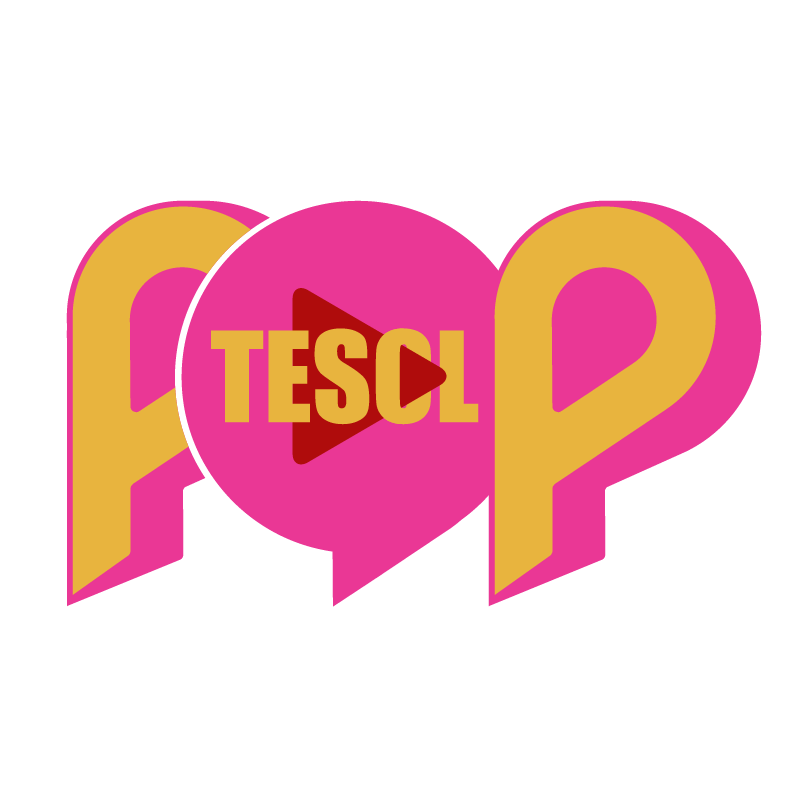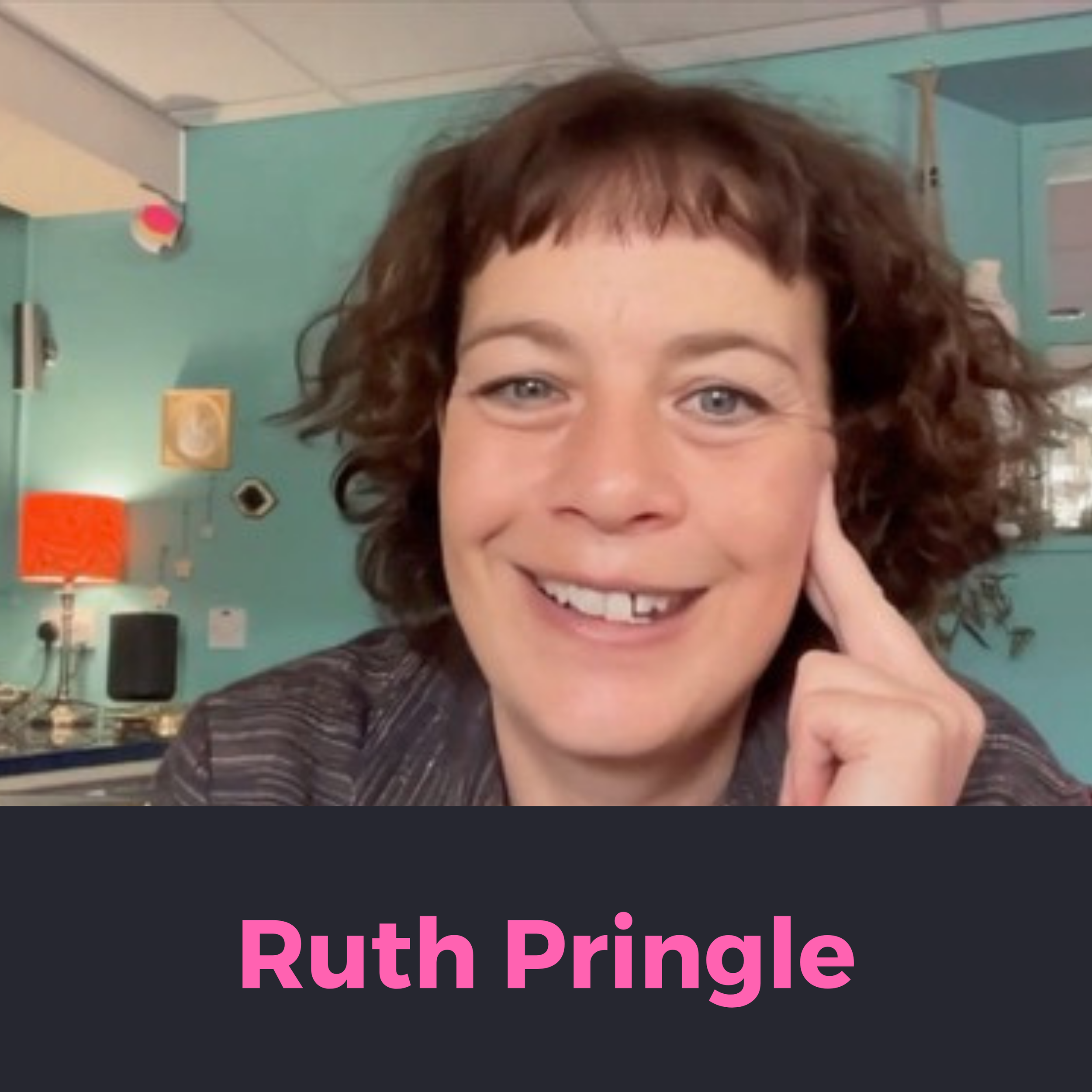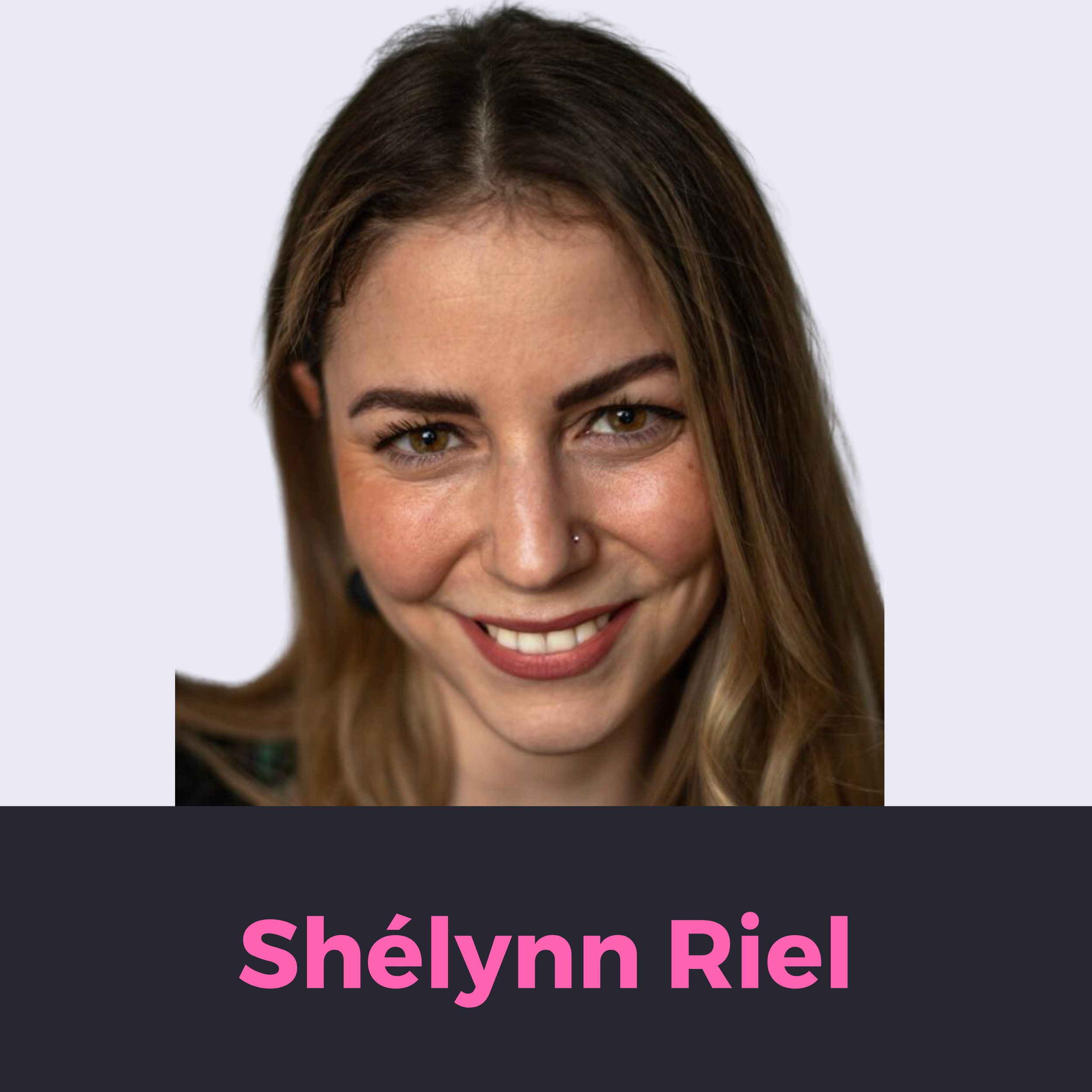S7E4: Ingredients for Great Copy to Grow Your Teaching Business with Jennifer Murray
Jennifer Murray, founder of Best Words Copywriting, discusses the key ingredients in planning and authoring great content.
Key talking points
✅ The purpose of content versus copy and why we need a combination of the two
✅ How a digital portfolio can benefit teachers, freelancers, and business owners
✅ The importance of knowing our audience, how we help them, and our unique selling point
✅ What to keep in mind when deciding what to create, where to post, and when
To learn more about Jennifer’s work, follow her on LinkedIn or visit her website Best Words Copywriting.
To watch this episode with closed captions, click on the video below or scroll down to view the transcript.
Transcript
00:00:00:01 - 00:00:28:10
Laura
TESOL Pop Season Seven Episode Four Hello and welcome to TESOL Pop, the mini podcast for busy teachers. My name is Laura and joining me today to talk about writing Excellent copy is Jennifer Murray. Jennifer has been in ELT for decades. She's been a teacher, a trainer, an editor, a publisher, and more. Now she's the owner of Best Words Copywriting, where she offers copywriting, copy coaching and editorial services to ELT freelancers and small businesses.
00:00:28:12 - 00:00:31:05
Laura
A very warm welcome to the show, Jennifer. Thank you for your time.
00:00:31:09 - 00:00:33:21
Jennifer
Hi! Thank you very much for inviting me.
00:00:33:23 - 00:00:52:01
Laura
In today's chat, we'll talk about the difference between copy and content, why copy is essential and the key ingredients your copy needs to make an impact. One thing we talked about when planning this episode is the difference between content and copy, and I was certainly quite confused between these two when we spoke and you helped to clarify this wonderfully.
00:00:52:05 - 00:00:54:14
Laura
Would you mind doing the same for our listeners?
00:00:54:16 - 00:01:28:02
Jennifer
Yes. So I like to think of it as being a sort of content continuum. So if you think about a post that you might put on social media on Instagram about your favourite coffee shop, for example, that's a kind of content post. It's telling your audience something about you, what you like, what you enjoy doing, and then perhaps on your website you might have a sales page that's promoting a new service that you're offering, maybe a mini language course or some training materials and the words around that page around your sales page.
00:01:28:06 - 00:01:55:06
Jennifer
That's copy. So copy is about selling, but not in a sleazy way. I think sometimes selling sounds like something that we don't feel completely happy with, but copy is really persuasive words, persuasive language, and you're informing your audience about what you do and why it's a good fit for them, and hopefully they will become clients.
00:01:55:08 - 00:02:09:19
Jennifer
So it's kind of a continuum from educating, entertaining and forming right the way through to persuading. I'm selling, and why not? We’re all businesses, we all want to sell, in the end.
00:02:09:21 - 00:02:25:23
Laura
That's really helpful to distinguish those two. You mentioned like the content post on social media versus a landing page that may promote a product or service that you're offering. Could you provide a few more examples of those different kind of copy scenarios and what they may look like?
00:02:26:00 - 00:02:58:24
Jennifer
Yeah. So if we think about the continuum again, we're kind of going from entertaining, educating, inspiring, informing to selling. So an entertainment post could be a story about something that happened in your classroom and what the students or what you learned from that experience. So it's kind of sharing, sharing your life something humorous about your life. An education post could be something about a language tip or learning tip to expand your vocabulary.
00:02:58:24 - 00:03:25:07
Jennifer
Something like that. Inspiring could be a quote from someone that you find inspiring, or a book or a film or something that you've read that inspired you to think about teaching or learning or students in some different way. An information post could be something about an upcoming event you're taking place that you're taking part in, or that you've helped organize, or a conference that you want to attend.
00:03:25:08 - 00:03:59:05
Jennifer
Something like that would be of interest to your audience. And then, a copy post would be more promoting a new service, promoting a sale that you have on maybe promoting an event that you're organizing and you'd like people to register for. And so I think the first sets of posts, the informative educational ones, are about you making contact with your audience, people getting to know you, getting to like you, getting to trust you.
00:03:59:07 - 00:04:20:13
Jennifer
And if you've done all of those types of content posts, then when you get to a more copy oriented one and more sales oriented one, you already have the trust of your audience. So it's much easier to talk about a service or a product that you've created that you hope to you hope to launch and to sell.
00:04:20:15 - 00:04:35:21
Laura
So thinking about good copy then, and thinking about the listeners of this podcast, we do have obviously teachers who are working in a school versus teachers who may be freelancers or owners of their own business. How can good copy help each of these different profiles of listeners?
00:04:35:23 - 00:05:05:19
Jennifer
Good copy can help everybody. Really. It doesn't really matter where you are at the stage of your career or your freelance journey or business-owning journey. I think what's important is to start creating content and copy that suits where you are at the moment. So for example, if you are a teacher who's working at a school and you can create content about what you do about your favourite lesson, something that happened in class, some tips for all the teachers.
00:05:05:21 - 00:05:33:15
Jennifer
And what that does is get you started on your content creation journey. And it's a really great way to connect with other people and to meet peers to build your sort of professional network, which can help with training and opportunities like presenting at conferences or some writing work or whatever. And that's kind of your way to show your expertise, because often in the classroom situation, you're doing really well in class,
00:05:33:15 - 00:05:53:00
Jennifer
your students are all happy and once you are out of the classroom, nobody really hear as much about it. So I think even if you're working and, you know, just starting off teaching, you still have a lot to share with with your network, with peers, and that will slowly start to build up an audience for the future as well.
00:05:53:05 - 00:06:21:13
Jennifer
If you are a freelancer or seriously considering to starting off as a freelancer, then creating content is essential because it's what gets you out there and gets you building an audience of people who could eventually become clients. Content about your work, your struggles, your solutions that you find, and tips about becoming freelance just for sharing,
00:06:21:15 - 00:06:45:22
Jennifer
sharing that journey is a great way to, you know, to build an audience of all the freelancers. But also sharing that journey is a great way to build your audience as well. And then, of course, if you're a business owner stage of your journey, then creating content is your advertising, is your window to the world.
00:06:45:22 - 00:07:09:07
Jennifer
That's where people can see what you do. They can get to know you and they get to know your offer. They know how to contact you. So for everybody, creating good content, is a great way to get for people to get to know you, get to like you, get to trust you. And then the selling part, the copy part that we talked about before is much easier because people already know you.
00:07:09:09 - 00:07:32:10
Jennifer
And I think it's a great way to want to build an audience, like we said, to widen your network. But it's a great way to become known for something as well. I mean, if you look at people within our ELT community who are quite successful on social media, they've become known as someone who creates crafting material for children for example.
00:07:32:10 - 00:08:04:12
Jennifer
Someone who supports organisations with policies for diversity, and inclusion, and someone who's a sustainability expert. So it doesn't have to be just speaking about your lessons. It's what you do, what you believe, your values and all of those things make that make you a more rounded person that people that people get to know one can trust and they get to know for something that you are, you know, you're an expert in.
00:08:04:14 - 00:08:12:14
Laura
So we've talked about the difference between copy and content and how it can help people. Could you give us the key ingredients we need to write excellent copy?
00:08:12:15 - 00:08:31:06
Jennifer
There's two things to think about. First of all, before you get started and then once you once you started. So let's look at the things to consider before before you start posting or before you start creating copy. I think you have to be very clear about what do you want to do, What is each post going to do?
00:08:31:06 - 00:08:59:22
Jennifer
Is it one of those entertainment posts that we said before is an inspiring quote? Is it something factual that's giving information? So be really clear about what what each post is for. And and the second. But almost the most important thing is to be really clear who you're speaking to. So I think in this context, when we're talking about creating content and copy to help your business, you're speaking to an ideal customer.
00:08:59:24 - 00:09:21:23
Jennifer
So you have to be really clear about who your ideal customer is. Then there's a lot of big decisions around about where to post. So are you going to use Instagram or LinkedIn or Threads? You know, where is the best place for you to post and the best place for you to post really is where your audience are.
00:09:22:02 - 00:09:46:15
Jennifer
So it comes back to to knowing your audience. Where are they online? Are they on TikTok? Are they on Pinterest? And I would recommend starting with one social media network and just concentrating on that or else it becomes, you know, an awful lot of time and effort to cover three or four different social networks. So choose the best one for you.
00:09:46:20 - 00:10:15:07
Jennifer
And the best one is where your audience is. And then I am think a little bit about what format you're going to use in your posts. So are you going to use videos or images or text or a little clip of audio and slideshows? And you don't obviously don't have to stick with the same format each time, but try and match the format to the intention of the content as well.
00:10:15:09 - 00:10:48:22
Jennifer
That will really help. And then I think maybe the final big decision is, you know, you've thought about social networks, but think about having your own website or your own blog. And I would really recommend that as a place to get started because it's your own website or your own blog is an area that you control that belongs to you, and you're not going to be shut down overnight in the same way that could happen with a Facebook account or something like that.
00:10:48:24 - 00:11:18:05
Jennifer
And also, although it might take more time to create content for a blog, once you've created it, you can repurpose and use it in lots of different ways to create smaller bits of content. So once you've done all of those things, you're ready to start creating the content. And and what I would say here, and it's really important is again, that clarity and what are you, what are you posting about in terms of your offer?
00:11:18:05 - 00:11:43:06
Jennifer
So you're posting about, you know, a three month language course where you have online lessons and additional homework tasks, things like that. So what does that really mean to your your reader, to your audience? What are the benefits of that? So you have to really explain to the reader what's in it for them, what are they going to get out of the experience?
00:11:43:08 - 00:12:09:13
Jennifer
So they're going to have 1 to 1 classes with you online. They'll have recycling, consolidation of your language, things like that. Make it really clear why this is an attractive offer for them, how it's going to benefit them and how it's going to improve their life, improve their language learning skills. And then you have to be clear about about, you. Why are you the best person to offer this service?
00:12:09:15 - 00:12:34:07
Jennifer
What's your what's your special superpower, your ELT superpower. So are you an expert in pronunciation or an experienced medical English teacher? You know, what's your what makes you the person that's going to help your audience more than the next person? Finally you need to be really clear about what you want the reader to do.
00:12:34:11 - 00:12:57:19
Jennifer
So they've read this wonderful post about your new language course. They're really interested in finding out more or even registering for a level test or whatever. What do you want them to do next? So should they comment on the post? Should they email you? Can they call you and do they have to take a test and they make a calendar booking?
00:12:57:21 - 00:13:31:01
Jennifer
Be really clear of the one thing that you want them to do. So clarity. Clarity about your offer, clarity about your ELT superpower, clarity about the next stage. And then I think just two more clarity things and not being too jargon heavy. So think about your reader, will readers understand blended learning or intensive courses or a synchronous learning, those kinds of jargon words that we use. And lastly,
00:13:31:06 - 00:14:02:13
Jennifer
you know, key ingredient is to be consistent. So being consistent doesn't mean posting or creating content or updating your website every day. It just means doing it regularly. So if you decide that for you, it's you can commit to posting twice a week on Instagram, that's fine. People will tell you all sorts of things about the algorithm and that you must do this and you should do that, but decide for yourself what what you can commit to and stick at it.
00:14:02:13 - 00:14:17:04
Laura
It's these are really brilliant points. Jennifer, thank you so much for sharing your insights and expertise on copy. I feel really inspired to go away and start thinking about the type of copy I'm writing and being a bit more strategic about my planning as well.
00:14:17:06 - 00:14:20:21
Jennifer
That's good. I look forward to reading it.
00:14:20:23 - 00:14:40:06
Laura
No pressure. To find out more about Junnifer's work then go to her website bestwordscopywriting.com or find her on LinkedIn. As always, I have included the links in the show notes for you to access easily. If you have a question that you'd like us to answer or you have a topic that you'd like us to talk about on the podcast and you can contact us via Facebook, Instagram or the website directly. TESOL Pop.com. Finally, you can support the work we do at support by leaving a rating and review wherever you listen to the podcast. By sharing today's episode with your teaching community or by even buying us a coffee at ko-fi.com/tesolpop
You might also like
Good to know
This blog space and its associated multimedia content contain affiliate links. To learn more about how affiliate links work, please read our disclaimer here.




Kate Bodrova, co-founder and CEO of Amazy, explores how technology is positively impacting teaching. Kate shares insights on how Amazy helps educators create and share interactive, media-rich resources while streamlining workflows. In this episode, Laura and Kate also discuss current trends, including AI’s role in education, the rise of the teacherpreneur, and how educators can leverage technology to enhance—rather than replace—human connection in the classroom.